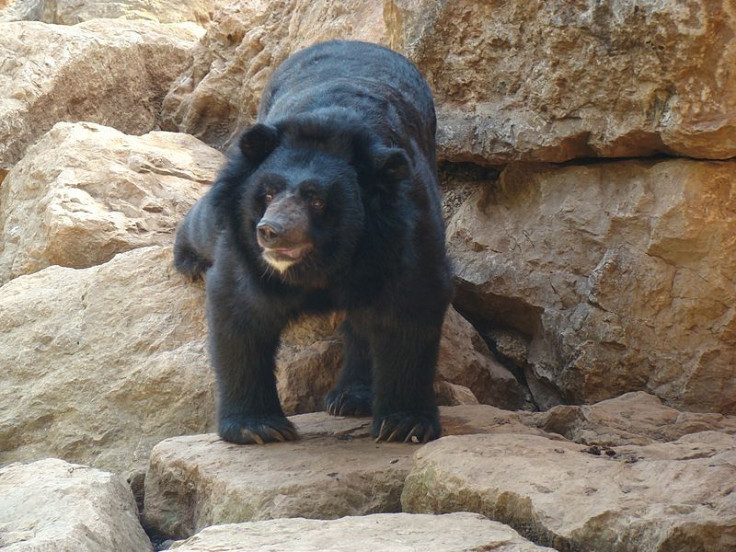Champa, First Bear Ever To Undergo Brain Surgery, Recovers in Laos

A three-year-old Asiatic black bear named Champa represents a vulnerable species on the conservation list as a result of deforestation in the landlocked country of Laos, bordered by Burma and China.
But what's even more rare about Champa is that she's a medical pioneer — she recently became the first bear in the world to undergo brain surgery.
When Champa demonstrated erratic behavior and loss of vision, the veterinarians and staff at the Free the Bears sanctuary became worried that she had "water in the brain" or hydrocephalus, which is a disease that occurs in humans and animals when there's an accumulation of cerebrospinal fluid in the cavities of the brain.
Many Western countries call for euthanizing animals with hydrocephalus, but it goes against the Buddhist beliefs in Laos. So, the bear sancturay staff called Romain Pizzi, a veterinary surgeon from the Edinburgh Zoo in Scotland, to perform laporoscopic surgery, reported National Geographic.
The six-hour surgery involved drilling a hole behind Champa's ear and inserting a tube directed by a camera into the brain. The tube was then threaded under the skin to the abdominal cavity where the fluid could be drained and absorbed.
"There was a lot more recognition," Matt Hunt, chief executive of Free the Bears, told National Geographic. "We can't know if her vision is fully recovered, but everyone certainly believes her vision has improved."
The white-chested Champa has lived in the sanctuary most of her life, and she has probably been safer there than out in the wild. The surrounding regions are infested with wildlife traffickers who use Asiatic black bear bile as an ingredient for Chinese medicine.
The staff monitored Champa for six weeks post-surgery. She shows more relief, weight gain, and is able to socialize with other bears.
"Operating on one bear won't save bears from extinction, and making life better for one bear won't change the world," said Pizzi. "But the world of that one bear is changed forever."
View photos of the surgery here.



























